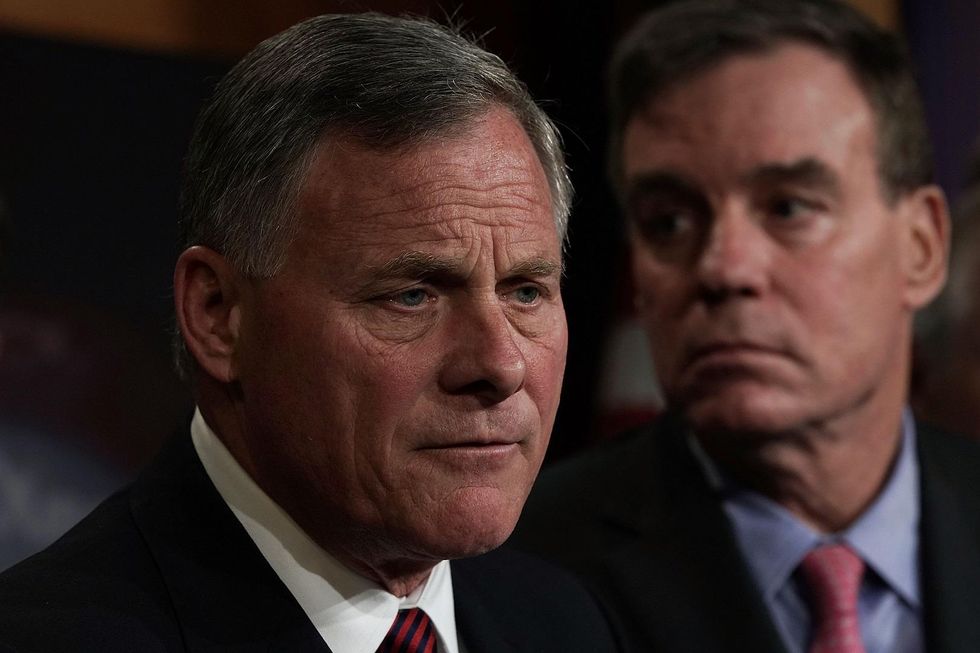
Sen. Richard Burr (R-N.C.)(L) speaks during a news conference on March 20, 2018 in Washington D.C. Burr was one of two REpublicans who voted with Democrats to kill a spending cuts bill proposed by the Trump administration. (Alex Wong/Getty Images)

The Senate voted 48-50 to reject a spending cuts bill proposed by the White House. Two Republicans crossed the aisle and voted with Democrats to kill the measure.
The Spending Cuts to Expired and Unnecessary Programs Act proposed $15 billion in cuts between 2018 and 2028. The money would be cut from a number of different departments, including Agriculture, Commerce, Energy, Health and Human Services, Justice, and Housing and Urban Development.
However, the Washington Post noted that most of the spending would involve funds that the government could not spend anyway, including $7 billion from the Children's Health Insurance Program that mostly came from an expired and unusable account. When these programs are factored in, the total amount of budget cuts to be spread over the 11-year time period comes to around $1 billion.
Senate Democrats did not have the numbers to kill this bill without help from their Republican colleagues. Sen. Susan Collins (R-Maine) voted against the bill, as did Sen. Richard Burr (R-N.C.), who typically supports Trump's policies.
Burr's office told the Washington Post that he was concerned about $16 million in cuts to the U.S. Forest Service's Land and Water Conservation Fund projects. Burr has called for the extension of the fund, which is set to expire in September.
The bill, which was requested by the Trump administration, was sponsored by Rep. Kevin McCarthy (R-Calif.) and co-sponsored by 16 Republican members of Congress. It narrowly passed the House of Representatives 210-206 on June 7.
White House budget director Mick Mulvaney called the vote “disappointing.” He added:
The American people should be asking their representatives in Washington one simple question: If they cannot pass good-government legislation to recapture unnecessary funds, how can we ever expect them to address Washington’s staggering debt and deficit problem?
This failed spending cuts bill was dwarfed in comparison to the $1.3 trillion omnibus spending bill that Congress passed and President Donald Trump signed in March.
While Congress and the Trump administration have implimented tax cuts, they have not cut spending to match the decrease in revenue. In May, the U.S. federal government had the largest deficit for that month in any year since 2009. Bloomberg predicted that, if current trends continue, the deficit could pass $1 trillion by 2020.